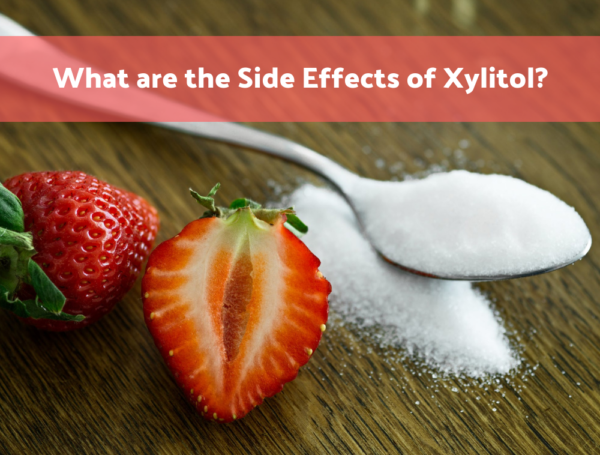
24 Oct What are the Side Effects of Xylitol?
For more than 25 years doctors and dentists around the globe have been conducting clinical research on the sugar alcohol xylitol. Naturally sourced from fruits, vegetables, and plant fibers, xylitol is naturally sweet and crystalline just like sugar. Proven to be extremely beneficial for overall health, xylitol is increasing in popularity. But does it have any side effects? Our ever-evolving health conscious community has been wondering if our featured ingredient has any down sides.
As with many food items that are friendly for humans, xylitol is not pet friendly. The side effects of xylitol in some pets are dire. When ingested by humans, xylitol does not stimulate the release of insulin from the pancreas and is perfectly safe for consumption. However, when xylitol is ingested by a few species of dogs, it is rapidly absorbed into the bloodstream triggering a potent release of insulin. This can cause hypoglycemia (rapid decrease in blood sugar) which can be life threatening if left untreated. As such, items that include xylitol as an ingredient should be kept at a safe distance from the furry members of your family.
Again, xylitol is perfectly safe for humans. It may have a slight laxative effect because it is absorbed like fiber. When consumed in large amounts, it may even lead to diarrhea, but most users do not experience these symptoms. To avoid frequent trips to the restroom, follow the guidelines on the nutrition label when eating any food item, especially with xylitol.
The final verdict? Xylitol is completely safe for humans and can be an excellent addition to your daily diet. In fact, it’s naturally produced in small amounts by the human body. It is certainly a healthier sweetener than sugar and it also happens to give your immune system additional support.
